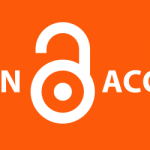
Open access is about making the products of research freely accessible to all. It allows research to be disseminated quickly and widely, the research process to operate more efficiently, and increased use and understanding of research by business, government, charities and the wider public.
There are two complementary mechanisms for achieving open access to research.
The first mechanism is for authors to publish in open-access journals that do not receive income through reader subscriptions.
The second is for authors to deposit their refereed journal article in an open electronic archive.
These two mechanisms are often called the ‘gold’ and ‘green’ routes to open access:
- Gold – This means publishing in a way that allows immediate access to everyone electronically and free of charge. Publishers can recoup their costs through a number of mechanisms, including through payments from authors called article processing charges (APCs), or through advertising, donations or other subsidies.
- Green – This means depositing the final peer-reviewed research output in an electronic archive called a repository. Repositories can be run by the researcher’s institution, but shared or subject repositories are also commonly used. Access to the research output can be granted either immediately or after an agreed embargo period.
Article first published – http://www.hefce.ac.uk/rsrch/oa/whatis/
To encourage all academic communities to consider open access publishing, Authors Alliance has produced a comprehensive ‘Understanding Open Access‘ guide which addresses common open access related questions and concerns and provides real-life strategies and tools that authors can use to work with publishers, institutions, and funders to make their works more widely accessible to all.
To access and download the guide, please follow this link – http://authorsalliance.org/wp-content/uploads/Documents/Guides/Authors%20Alliance%20-%20Understanding%20Open%20Access.pdf
For any other open access related queries, please do get in touch with Pengpeng Hatch (pphatch@bournemouth.ac.uk) at RKEO.
 What is Open Access?
What is Open Access? It’s INTERNATIONAL OPEN ACCESS WEEK!!
It’s INTERNATIONAL OPEN ACCESS WEEK!! It’s INTERNATIONAL OPEN ACCESS WEEK!!
It’s INTERNATIONAL OPEN ACCESS WEEK!!










 Beyond Academia: Exploring Career Options for Early Career Researchers – Online Workshop
Beyond Academia: Exploring Career Options for Early Career Researchers – Online Workshop UKCGE Recognised Research Supervision Programme: Deadline Approaching
UKCGE Recognised Research Supervision Programme: Deadline Approaching SPROUT: From Sustainable Research to Sustainable Research Lives
SPROUT: From Sustainable Research to Sustainable Research Lives BRIAN upgrade and new look
BRIAN upgrade and new look Seeing the fruits of your labour in Bangladesh
Seeing the fruits of your labour in Bangladesh ECR Funding Open Call: Research Culture & Community Grant – Apply now
ECR Funding Open Call: Research Culture & Community Grant – Apply now ECR Funding Open Call: Research Culture & Community Grant – Application Deadline Friday 12 December
ECR Funding Open Call: Research Culture & Community Grant – Application Deadline Friday 12 December MSCA Postdoctoral Fellowships 2025 Call
MSCA Postdoctoral Fellowships 2025 Call ERC Advanced Grant 2025 Webinar
ERC Advanced Grant 2025 Webinar Update on UKRO services
Update on UKRO services European research project exploring use of ‘virtual twins’ to better manage metabolic associated fatty liver disease
European research project exploring use of ‘virtual twins’ to better manage metabolic associated fatty liver disease